The Homeowner’s Guide to Low-Maintenance Driveways
As a homeowner, your driveway is probably one of the last places you’d expect to have to do maintenance. Your driveway is supposed to be a solid, durable spot to park your vehicles and forget about them. For many homeowners across America, however, that’s not the reality.
Depending on what your driveway is made of, what kind of traffic it sees, the local weather, temperature fluctuations, and more, your driveway can end up taking a significant amount of abuse within a short timeframe. This can lead to having to spend money on maintenance multiple times throughout the lifetime of your driveway, which can be costly, especially if you have a concrete or asphalt driveway.
Low-Maintenance Driveway Options
Thankfully, there are many options out there when it comes to low-maintenance driveways. If you’re looking to install a new driveway or replace your old one, let’s break down some of the most popular types of low-maintenance driveways on the market today:
1. Paving Stones
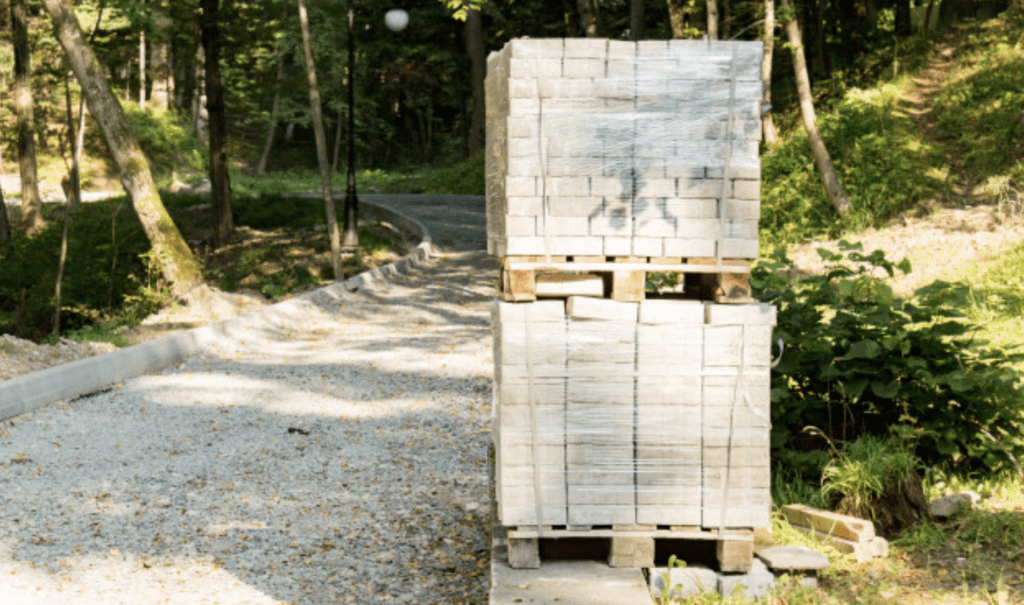
Paving stones are known to last up to a full century if properly laid. A paving stone driveway possesses a ton of other benefits as well, especially if coupled with permeable paving. Paving stone driveways tend to be sourced from different quarries around the globe, making them much more eco-friendly than other common driveway materials like asphalt and concrete.
A paving stone driveway can be laid with either concrete or some type of permeable material in between the stones. Both versions will last you a long time, but only driveways with permeable material in them will be able to handle drainage needs as well. You can even have a heating system installed beneath your paving stone driveway if you live in an area with a lot of snow and ice.
One of the main drawbacks of a paving stone driveway is the sheer amount of time and effort it takes to install. If you aren’t doing all that hard work yourself, you’ll be paying someone else a pretty penny to do it for you.
2. Concrete Grass Pavers
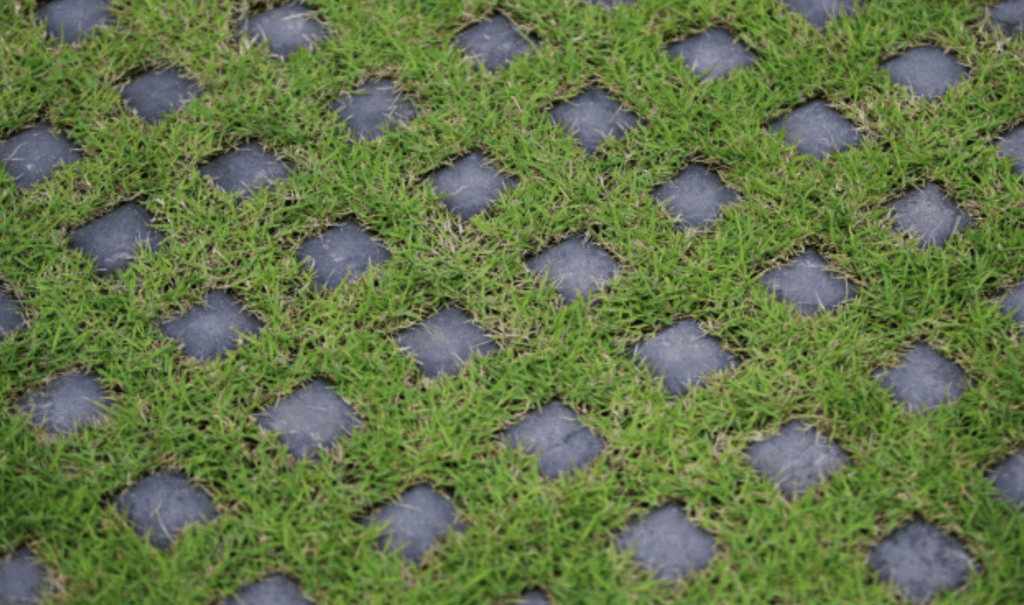
An interlocking concrete grass paver driveway made may be an option for your driveway. Filled with small square holes in which you can see the underlying grass or soil, grass pavers allow water to pass through unencumbered. This is an eco-friendly feature that prevents driveway flooding for you and prevents your local water systems from being polluted with extra runoff from heavy rainfall.
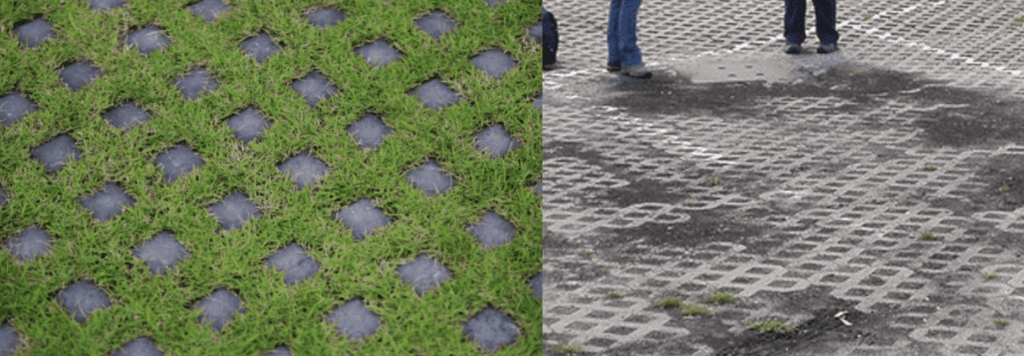
These types of interlocking concrete grass pavers can be relatively expensive and they do take a bit of time and effort to install. One of the biggest drawbacks of grass pavers is that, although the spaces in between the concrete allow water to pass, they also allow weeds and other pesky plants to pop up. And they clog easily as the grass tends to get choked off and die. This increases the maintenance level of a grass concrete paver driveway because you’ll have to do some pruning whenever the weeds pop up or frequent reseeding.
3. Plastic Permeable Pavers

Of all the options on the list, permeable pavers are by far the lowest maintenance and sometimes the lowest cost. This in no way means that they are the lowest quality driveway material, however. Permeable pavers like the kind made by TRUEGRID are made in the U.S.A. from 100% post-consumer recycled plastic and are known to outlast both asphalt and concrete.
Because they are made from plastic and can be filled with grass or gravel, they require almost zero maintenance and can last as long as a paved stone driveway. They are much easier to install than paving stones, yet can actually be laid in tandem with paved stones, brick, gravel, plain grass, or almost any other material you can think of.
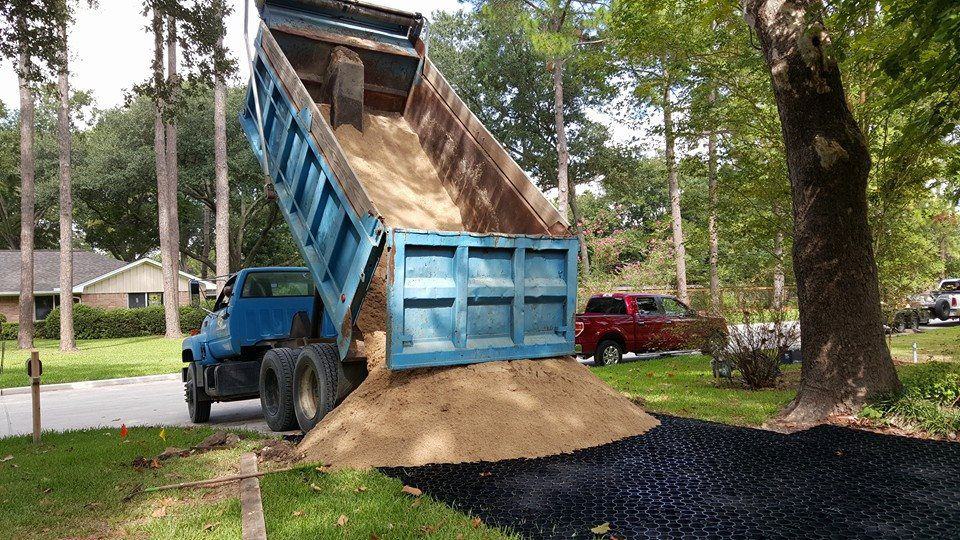
Because of the permeable nature of these interlocking plastic grids and the gravel aggregate fill, they will prevent you from having to do any type of regular driveway maintenance, but you’ll also be free from having to worry about driveway flooding as well.
Low-Maintenance Driveways Can Be Hard to Find
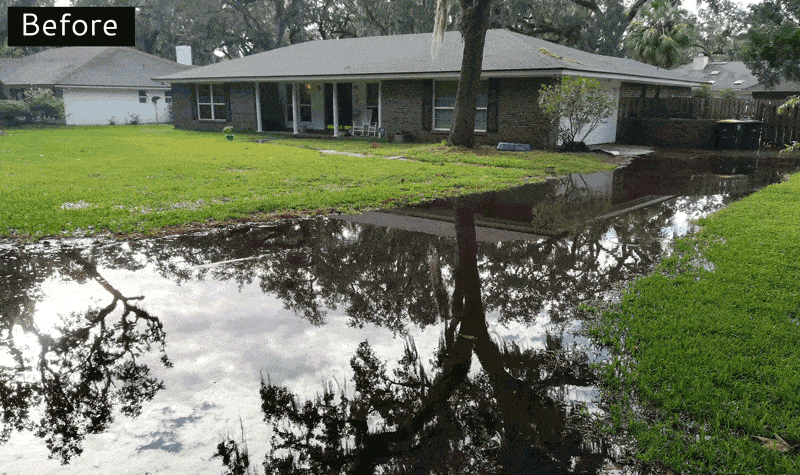
Because of the nature of driveways and how they are used, it’s hard to build one with low-maintenance needs. Concrete and asphalt both require regular maintenance, which really only leaves you with a few options. Concrete grass pavers can work, but if weeds pop up, you’ll be forced to do maintenance.
Paving stones can work as well, but are generally pretty expensive and hard to install. As it stands, the lowest maintenance yet highest performing driveway material out there is permeable paving from a reputable company like TRUEGRID.
TRUEGRID permeable pavers are so easy to install that you can do it yourself without any special equipment. They are made with the most eco-friendly process possible and will last through rain or shine without ever eroding away, becoming misplaced, cracking, collapsing, or experiencing any of the other problems that other common driveway materials have.
If you’re like most homeowners in 2020, you’re probably spending a lot of time at home these days. Whether you’ve been temporarily put out of work due to the global pandemic, or you just happen to have some extra time on your hands as we roll into summer, it’s never a bad idea to review your list of potential DIY projects to complete. While you probably won’t have time to get every one of them done, you should always have a list of ideas ready, should you find yourself in the DIY mood.
DIY Paving Projects
Paving projects are always a great choice, so here are 6 simple DIY paving projects you can complete around your home, and you can even have your family help.
1. Shed Base
Many people believe they need a concrete shed base, especially if they have heavy tools and such. However, the reality is that a concrete base isn’t your only or even your best option, even if you have heavy tools and machinery in your shed. You need something durable and strong enough to handle constant use and loads. And concrete isn’t very DIY at all.
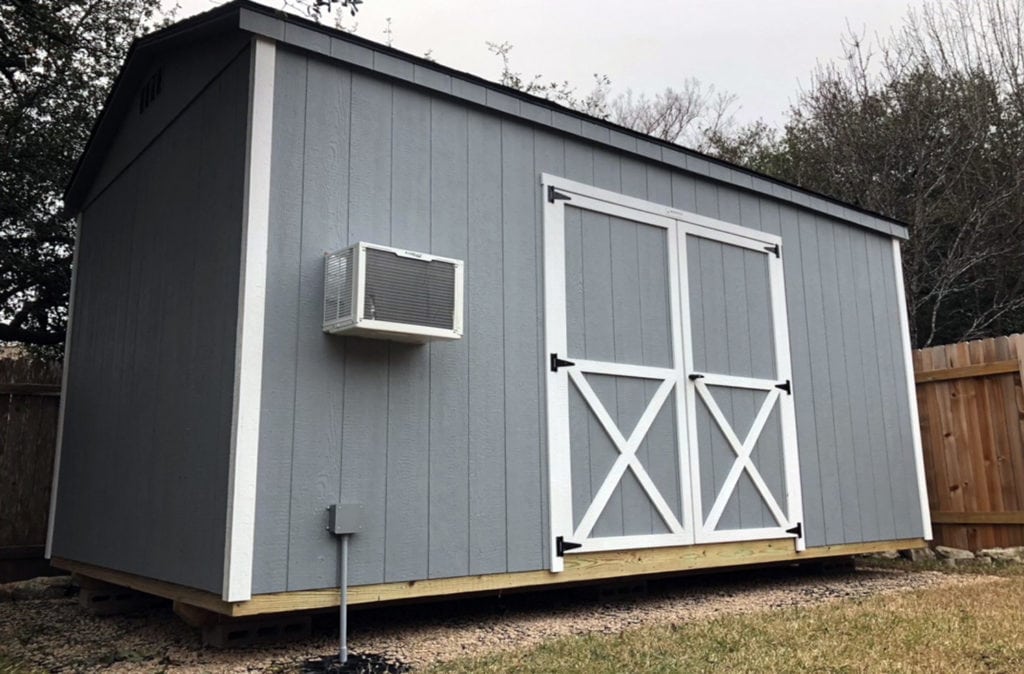
That’s where pads and pavers from TRUEGRID stand out. Strong and durable enough to withstand even the heaviest wear for the life of your shed and beyond. Permeable enough to instantly drain any rain or liquids into the ground below, ANd the easiest DIY base option available. TRUEGRID snaps together as easy as building blocks to make the perfect product for stabilizing your shed without having to go through the labor-intensive process of pouring concrete. Easy, fast and you’ll even probably save money.
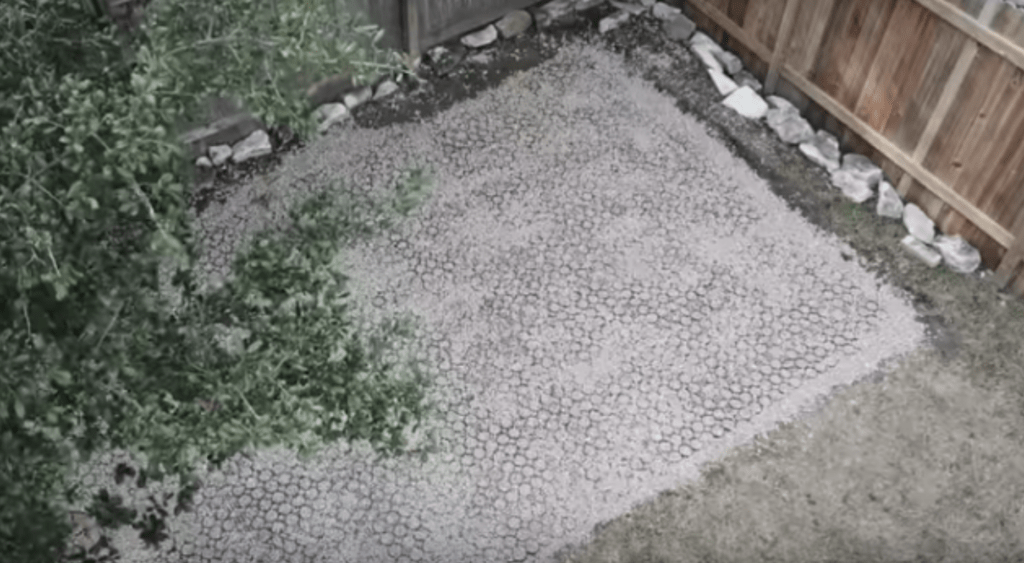
2. RV Parking
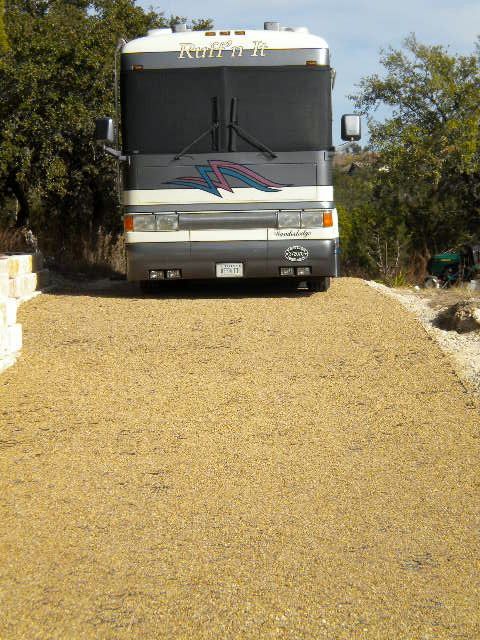
If you could use some extra parking space, there’s no faster, more cost-effective, and efficient solution than installing a DIY permeable paving area dedicated specifically to that.
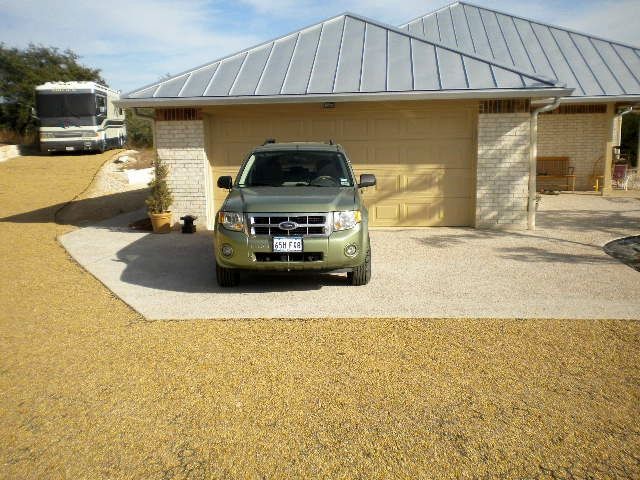
All you have to do is excavate the area with a shovel, pour in your aggregate, lay TRUEGRID permeable pavers over the top, pour some more aggregate over the top, and drive over it with a vehicle to crush the aggregate firmly into place. Voila, you’ve got a new place to park your RV or boat and it took no time at all. Stabilized, no more ruts, no more mud.
3. Gravel Driveway
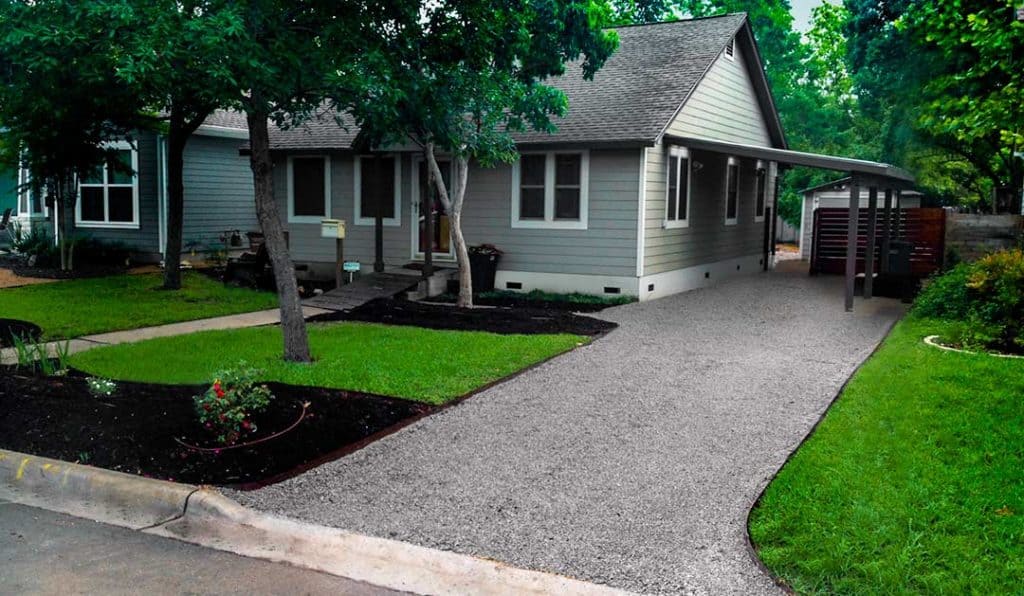
If you’re tired of your old concrete or asphalt driveway and you want to switch it up with a new grass or gravel driveway, permeable pavers from TRUEGRID are the perfect solution. Throw TRUEGRID PRO LITE down on compacted gravel or excavate and add base rock for extra drainage to protect your home.
The process is even simpler for creating a grass driveway. Simply lay down some ROOT grass pavers, press them into the grassy soil and let the grass grow through the stabilizing pavers. It’s ready to drive or park on. Enjoy your new multi-function driveway that doubles as part of your yard, which your kids are sure to enjoy.
4. Patio
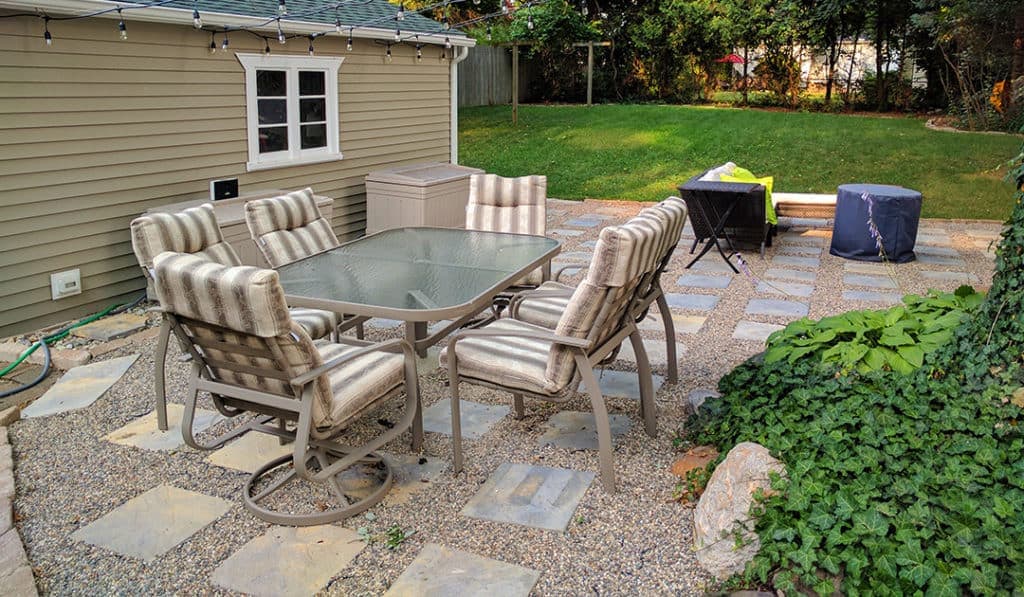
Patios are similar to sheds in that many homeowners expect them to be concrete. With DECO residential pavers from TRUEGRID, you can build a permeable patio drains away from the house during and after rainstorms, is cooler in the summer, and a more natural aesthetic with gravel or grass fill. DECO permeable pavers from TRUEGRID offer a stabilizing base to hold stone or concrete pavers and surrounding cells that can be filled with gravel or grass. This gives you a stabilized patio that incorporates some solid paving elements while still retaining its permeability.
This allows you to have the best of both worlds by combining your favorite stepping stone or rock designs into a mostly-permeable patio with plenty of stylistic options to match, complement, or contrast the other elements of your patio.
5. Dog Area
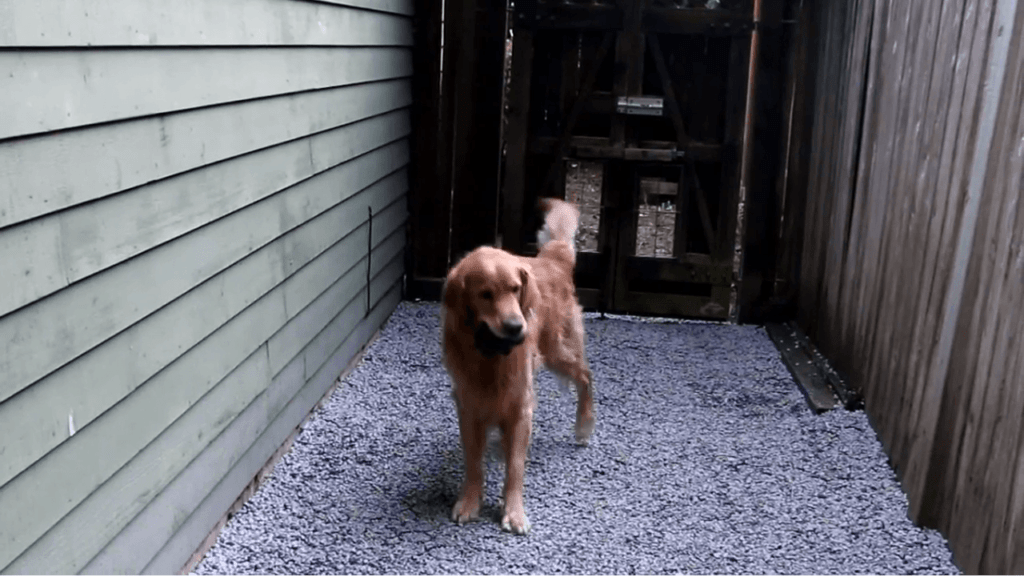
This is one project that is ideal to build with permeable pavement. Dog areas are known for being muddy, dirty, and sloppy, but with TRUEGRID permeable pavers, you can create and maintain a neat and tidy of a space for your precious pooch.
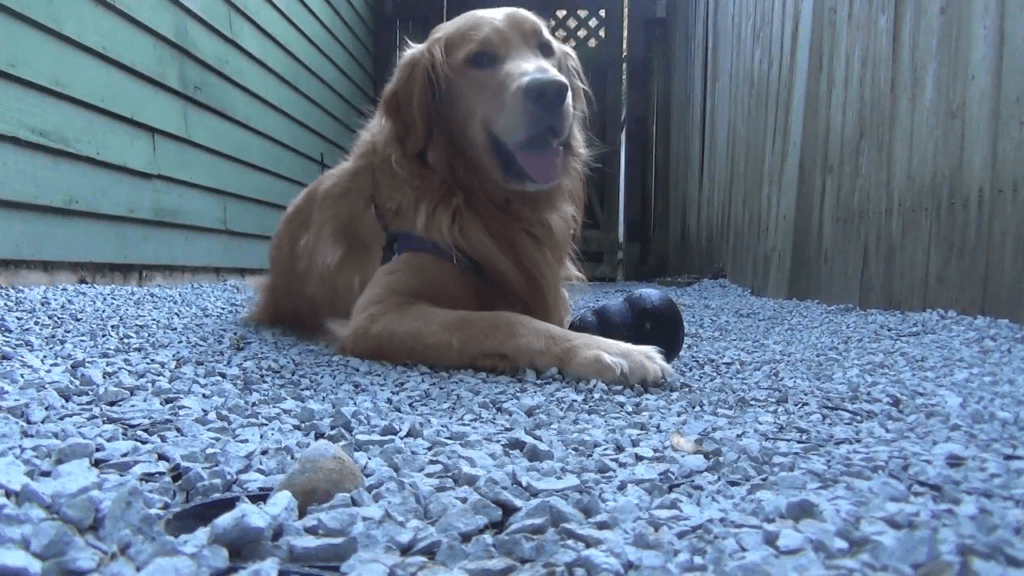
All the dirt and debris will remain largely trapped within the pavers, preventing your dog or dogs from tracking it into the house. You might need to spray wash this area often, but that’s about the highest maintenance level you’ll find for any permeable pavement projects from TRUEGRID.
6. Walkway
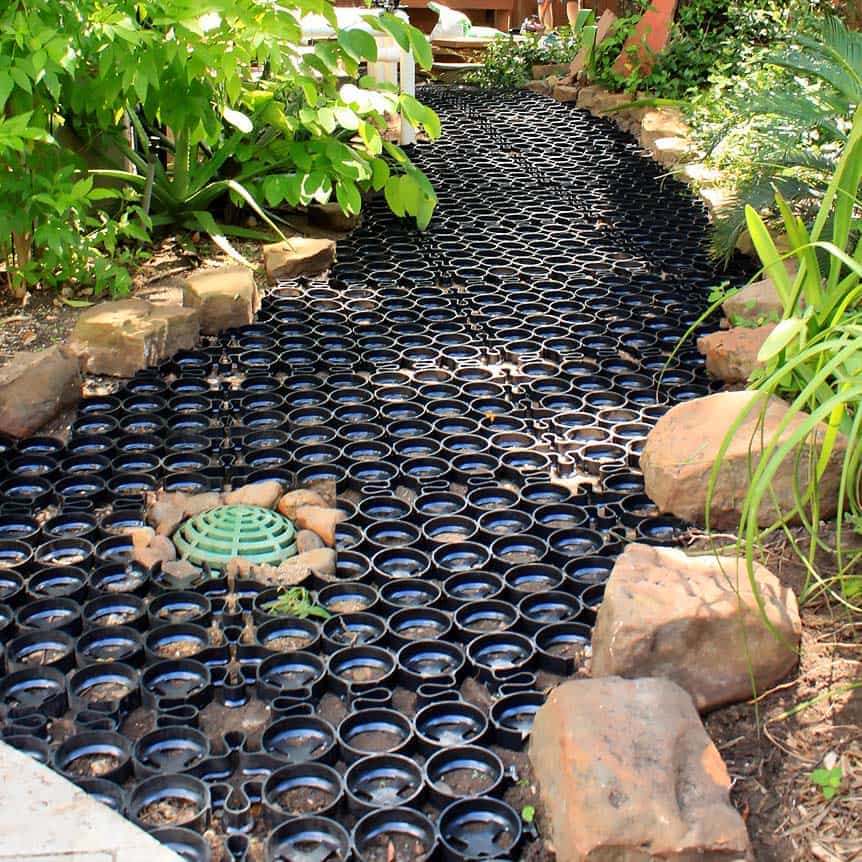
Permeable pavement isn’t just for dog areas, it also makes for the perfect walkway for you and your family. Regular walkways made from concrete or impermeable pavement will displace water, leading to washouts, sinkage, and other undesirable effects. With TRUEGRID permeable pavers, though, you can build beautiful walkways with minimal effort and even less threat of flooding damage.

The stormwater will simply flow right through the permeable areas of your walkway and into the ground, while the non-permeable aspects will continue to stand strong and unmoved. Or you could build the entire walkway from permeable pavers, and we wouldn’t blame you.
Do It Yourself this Year
With many of us locked down at home, the time to get DIY home projects done has never been better. Add that shed, create a patio, add drainage to the yard, fix that driveway, add parking easily, reimagine that muddy walkway, clean up that dog area and stop digging once and or all. Building these easy permeable paving DIY projects, you can create family projects that involve everyone. And the results are quick and satisfying.
When it comes to commercial paving options for parking lots and other similar usages, two main types probably come to mind, asphalt, and concrete. These impermeable paving materials have long been the standard and continue to be popular, simply because they work. But they do create problems with permitting, flooding and maintenance.
In recent years a new type of pavement has burst onto the scene. This type of pavement possesses many benefits and it is poised to take over in the very near future.
Commercial Paving Options
Commercial paving is essential for many reasons, so let’s take a look at how the three main players in the paving industry stack up against each other so that you are well informed when it comes time to make your decision.
1. Asphalt
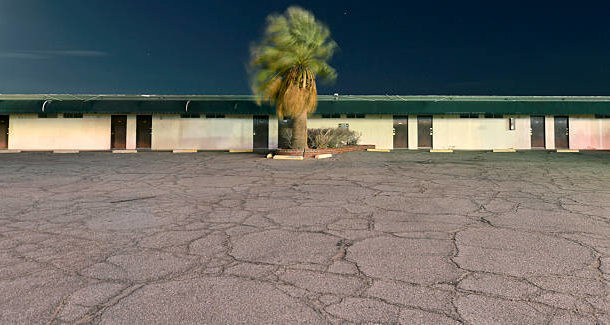
Asphalt has been the go-to choice for commercial parking lots for a while, mostly because of its price. Asphalt is one of the cheaper materials available for paving, and it does stand up (somewhat) well against the test of time. Asphalt can handle frequent traffic and does just fine in cold weather.
The cons of asphalt are many, however. Asphalt does not do well in hot weather, becoming sticky and leaving stains on shoes and tires as people travel over it. Asphalt also requires regular maintenance because it wears down over time and can develop cracks and ruts. Asphalt is also incredibly limited when it comes to aesthetics, with your only real option being black with yellow, white, or red lot lines.
Asphalt’s biggest problem is that it is impervious. This can cause flooding in urban areas which require offsetting drainage or detention ponds that can cost land and construction expense to owners. In large commercial projects, this can mean as much as 30% of land lost to the requirement of a detention pond to offset the asphalt impervious surface.
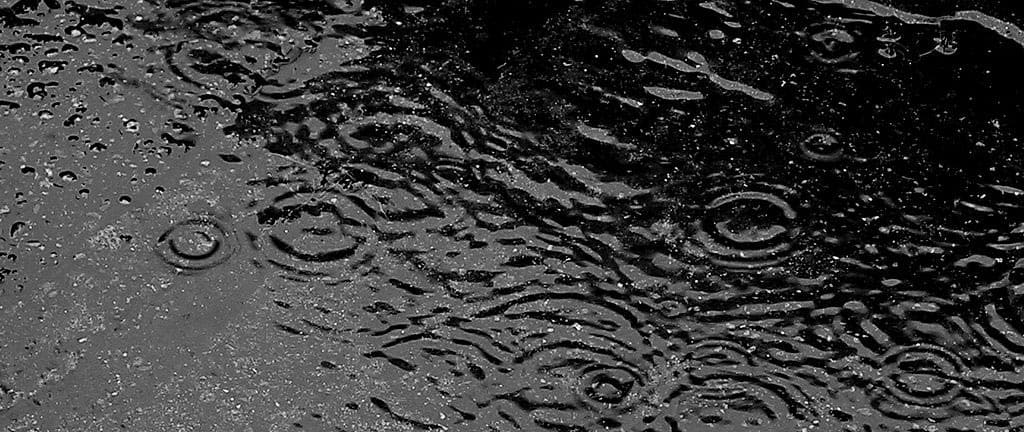
There are also other expenses associated with asphalt paving that can stack up and end up offsetting the initial low cost. Installation and maintenance are costly, despite the material itself being cheap. Asphalt also requires drainage because of its impermeability. These factors all add up to make asphalt a less than ideal paving material.
2. Concrete

The second most popular option for paving commercial parking lots is concrete. Unlike asphalt, concrete does well in hot weather. It’s also relatively low-maintenance. Concrete only requires a yearly cleaning and a joint sealing, as opposed to regular re-paving for asphalt. Another benefit of concrete pavement is that there are more options available in the form of different colors and textures.
Concrete, of course, is impervious and that means drainage or detention capacity or both will be required by local city codes. This reduces the amount of land available for use (by adding a detention pond), reduces the amount of parking for the business or facility.
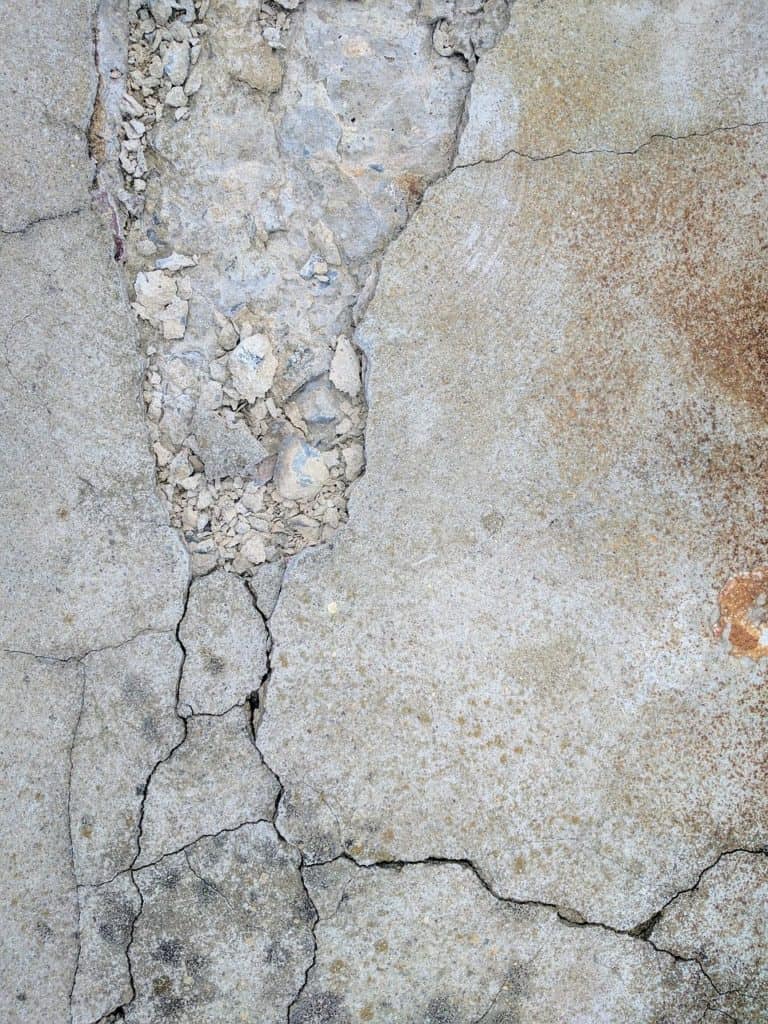
Concrete does have its fair share of other drawbacks too, though. It is terrible in cold weather, regularly cracking and breaking when going through freeze-thaw cycles. Concrete also takes a long time to install, nearly twice as long as asphalt does. And, like asphalt, it requires drainage systems to prevent flooding during heavy rain events. For these reasons, concrete is also a non-ideal option for most commercial businesses.
3. TRUEGRID Permeable Paving

TRUEGRID permeable paving is far and away the best paving option for commercial businesses going into the future. It is the least expensive paving material available, and it provides land savings and 100% land use as it is impervious Detention capacity is designed into the rock base below resulting in the entire area available for parking. It doesn’t require any regular maintenance or added expensive drainage systems that offset its low cost. It has a fast installation time and can usually be completed in ⅓ the time of traditional pavement days, maximum. Fast, inexpensive permeable paving.
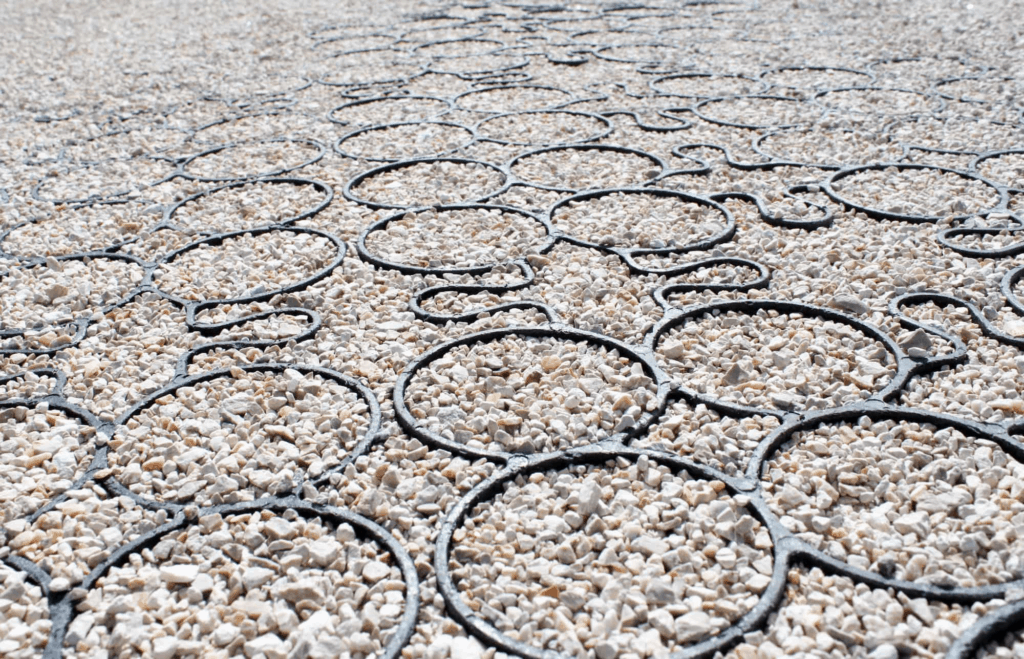
TRUEGRID commercial pavers are permeable, meaning they allow for the passage of liquids directly through them, eliminating flooding concerns and the need for additional drainage. The system drains at over 1000 inches per hour even after years of heavy use. This is better for the environment, and better for your pockets as well.
Made from 100% recycled plastic, TRUEGRID commercial pavers are also diverse when it comes to style and aesthetics. There are multiple different types of aggregates you can use to fill the pavers such as limestone and gravel. You can also add concrete or asphalt elements to your parking lot without sacrificing permeability. For lot lines, there are a variety of TRUEGRID SuperSpot parking markers available that can act as permanent, non-fading lines.
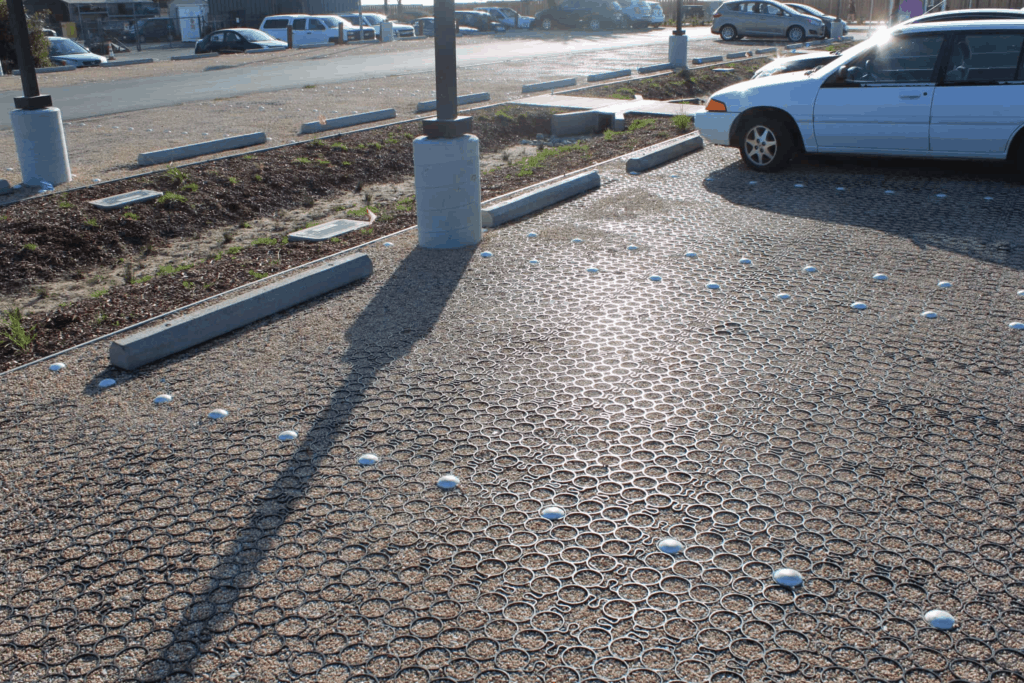
Another major benefit of TRUEGRID pavers is that they are the most eco-friendly paving material available. The pavers are produced, transported, and installed in the most eco-friendly manner possible. The installation process requires only the most basic materials, and the pavers themselves are proven to be as durable, if not more durable, as both concrete and asphalt.
There’s Only One Best Commercial Paving Option

If you’re looking to innovate wherever possible as well as save money and give your company a PR boost, the best thing you could do is install a TRUEGRID commercial paver parking lot. It is superior in terms of durability and cost-effectiveness, and it also comes with a built-in drainage system via its own permeability and requires almost zero long-term maintenance.
If you want the most eco-friendly, cost-effective, and durable commercial parking lot available without giving up anything in terms of stylistic options, it’s safe to say that TRUEGRID pavers are right for you. Don’t get stuck with a permanent asphalt or concrete parking lot when there’s a much better option right in front of you.
Grass parking has long been used by homeowners, small business owners, schools, and more to create temporary parking areas that don’t disrupt the environment or create permanent change to the area. Often, these grass parking lots were made of just that, grass. Unfortunately, the main drawback of parking lots like these is that they are somewhat temporary and unable to handle especially heavy loads like big trucks, planes, and other types of heavy vehicles.
However, major innovations have been made in grass parking technology that allow for continual, heavy-load usage from vehicles of all shapes and sizes. If you’re looking to build a parking area in the least expensive and fastest manner possible, let’s take a look at how you can achieve this with TRUEGRID permeable pavers.
Grass Parking Done Right
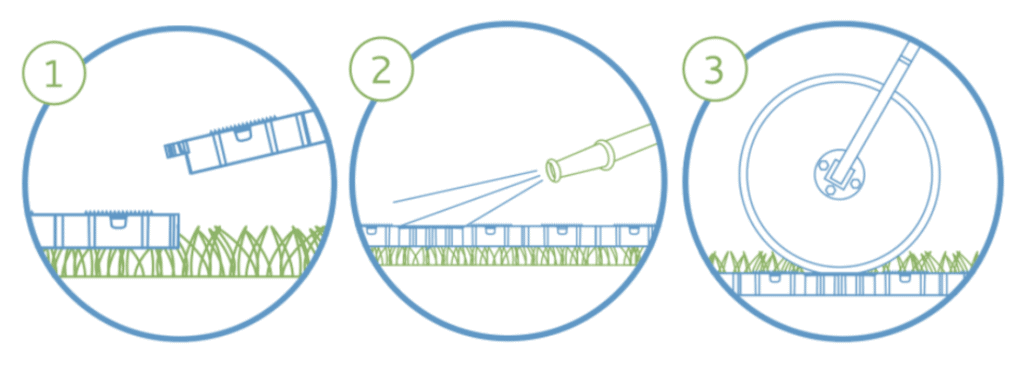
With grass pavers, you can create a stable, durable, and impermanent parking space that allows water to flow through while providing a place for heavy vehicles to park and planes to land. ROOT grass pavers from TRUEGRID are the number one product on the market when it comes to grass paving.
The main problem with parking areas that can handle heavy loads like planes and big vehicles is that they are impermeable, costly, and take forever to install. With TRUEGRID ROOT pavers, however, you can eliminate all of these problems at once without sacrificing anything in the way of functionality or durability.

In fact, since these pavers are able to handle heavy loads just as well as asphalt or concrete, they are the single cheapest way to pave an area. The cost of this product is so low because it is produced from 100% recycled plastic, and takes almost no time to install. The installment process of grass pavers doesn’t require any special know-how or equipment, except for a heavy roller or vehicle.
The Many Benefits of ROOT PAVERS

ROOT pavers are permeable, so you will not suffer any land loss by installing them. If the land you’ve paved with them isn’t being used for parking, it can be used for anything else you might normally use a plot of grass for. It also won’t displace any rainwater, which keeps you from having to install costly drainage systems or dealing with flooding around the edges. ROOT PAVERS are also the perfect way to implement grass parking in an area without ever having to worry about ruts or dips developing.
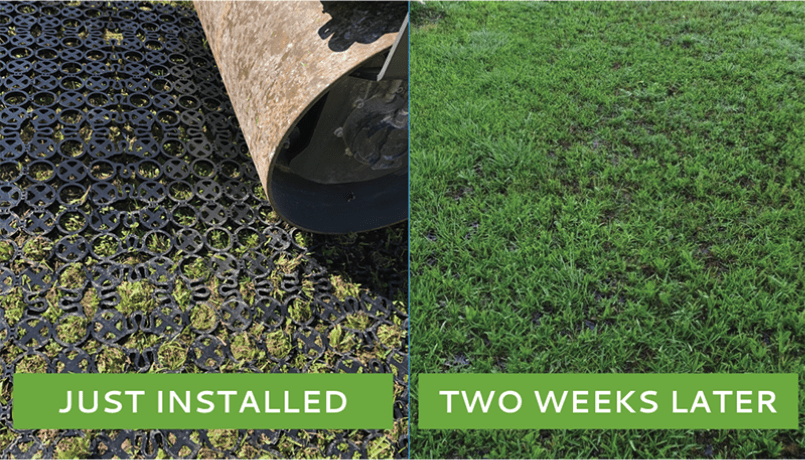
The design of these pavers allows them to be locked tight into place right through the grass that you lay them on. The X-anchor system will lock into the soil while allowing the grass to grow up through the pavers. The design of TRUEGRID ROOT pavers is so efficient, in fact, that you won’t even notice them beneath the grass., except that you won’t sink in wet weather!
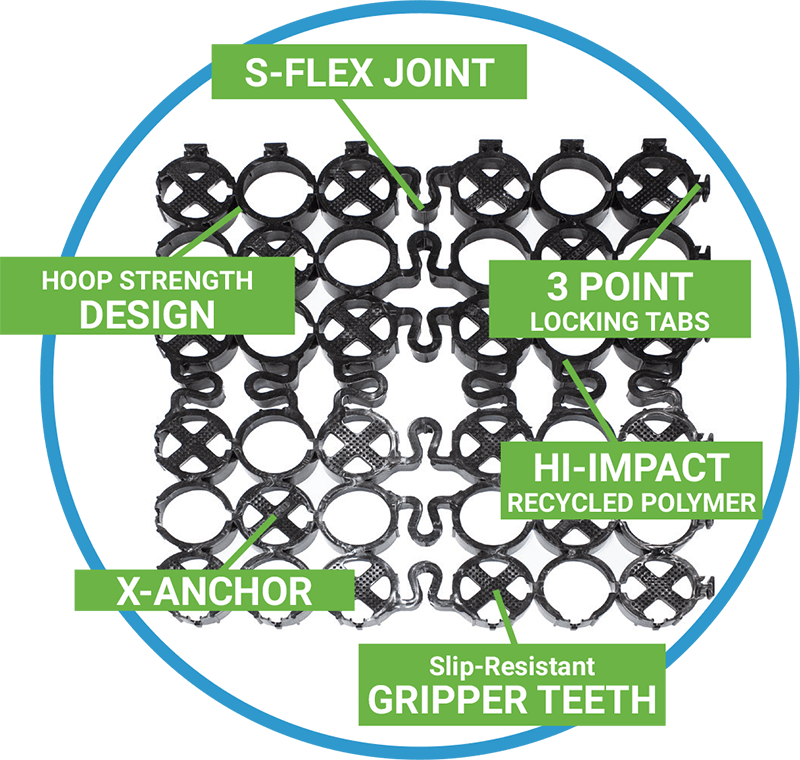
Normal parking lots designed to handle heavy loads require special permits before you can install them, and they require excavation that comes with its own equipment and manpower requirements. With TRUEGRID ROOT pavers however, you can build a parking lot that doesn’t obscure the natural environment, doesn’t require you to apply for any special permits, and doesn’t require you to excavate the land or hire expensive contractors to do it for you.
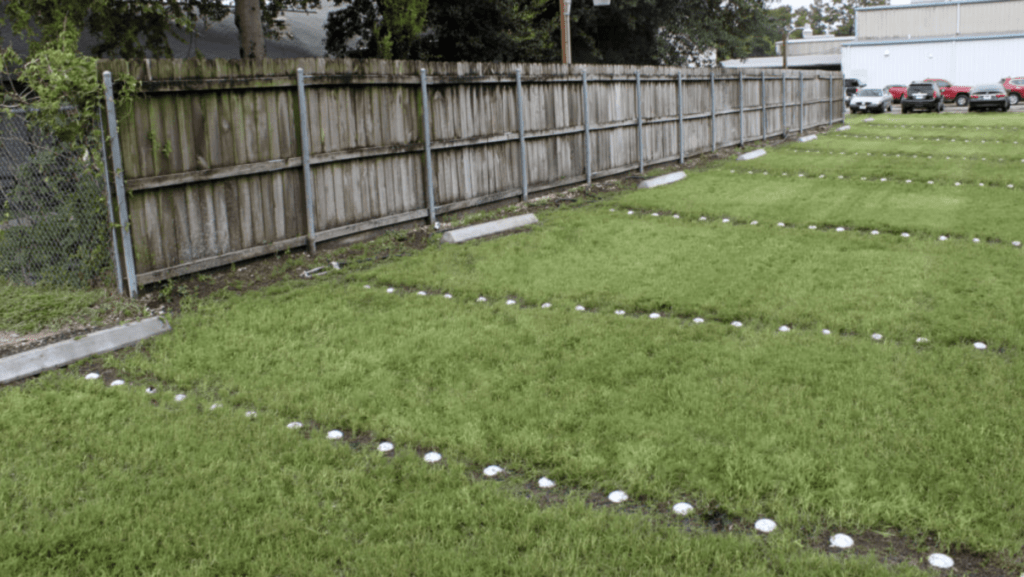
TRUEGRID ROOT Pavers are Eco-Friendly
Another highly underrated benefit of using TRUEGRID PERMEABLE ROOT PAVERS is that they are made from 100% post-consumer recycled plastic as well as produced in the most eco-friendly manner possible.
By investing in these pavers, over another type of paver made from less eco-friendly materials or concrete/asphalt, you are making the most environmentally-friendly choice possible with regard to installing a parking lot.
This is something that many don’t even consider when looking to install a parking lot designed for bearing heavy loads because they assume that more environmentally-harmful materials like concrete and asphalt are required in order to handle the intense weight and pressure of such large vehicles as planes, trucks, and more.
TRUEGRID has changed the game by providing this option for consumers, and made it possible to park even the heaviest of vehicles on reliable, eco-friendly grass pavement that stands the test of time.
TRUEGRID Has Revolutionized Grass Parking
The days of having to spend an arm and a leg to install an environmentally-friendly parking lot for heavy vehicles are over. With the invention of TRUEGRID ROOT pavers, you can now create a functional, industrial strength parking lot in a grassy area without changing the look or natural function of the land it’s built on.
TRUEGRID ROOT Permeable Pavers will create a highly-durable and reliable parking lot for the cheapest price and in the fastest time imaginable.


